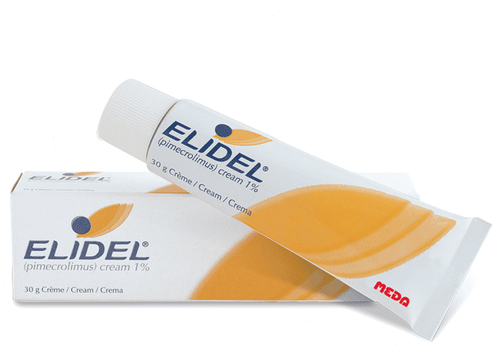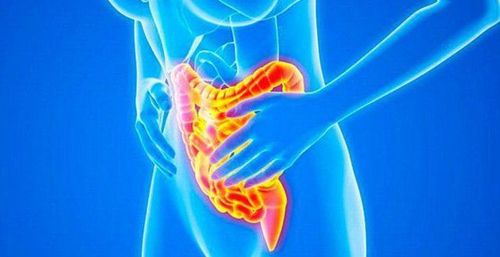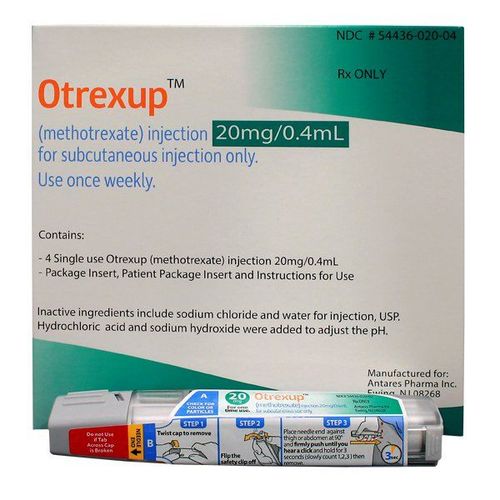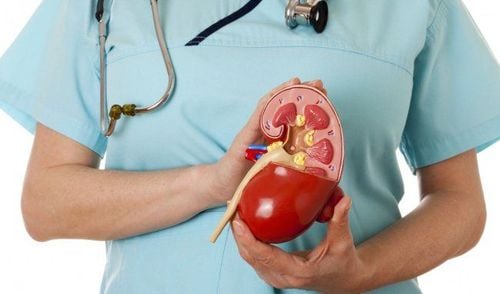This is an automatically translated article.
People with psoriasis were 2.5 times more likely to develop Crohn's disease and 1.6 times more likely to develop ulcerative colitis. Psoriasis is associated with a number of digestive disorders.
1. What is Crohn's disease (regional enteritis)?
Crohn's disease causes partial inflammation in the digestive system, but more often it causes inflammation in the small and large intestines. Crohn's disease and ulcerative colitis both belong to a group of diseases that cause inflammation of the intestines. Currently, there is no cure for Crohn's disease, only the symptoms of the disease.
Crohn's disease symptoms vary from person to person, but most people will experience some of the following symptoms.
Chronic diarrhea, often bloody and containing mucus, pus Weight loss Fever Abdominal pain Abdominal bloating Rectal bleeding People with Crohn's disease can have severe symptoms followed by periods of no symptoms. can last for weeks or years. Symptoms depend on the area of inflammation and the severity of the disease. Crohn's disease causes 2 types of complications: Intestinal complications and extraintestinal complications

Người mắc bệnh Crohn thường bị đau bụng và tiêu chảy mãn tính
1.1 Intestinal Complications Abscess: This pocket of pus occurs due to a bacterial infection. It can form on the walls of the intestines and bulge. Or an abscess that appears near the anus looks like a boil. The patient will have the following symptoms: Swelling, pain and fever. Persistent diarrhea: Crohn's disease usually affects the ileum, the lower end of the intestine. This part normally absorbs bile acids that the body makes to absorb fat. If the body can't process fat, it will cause diarrhea. Tear of the anal mucosa: Causes bleeding during defecation. Fistula: An ulcer can become a fistula connecting two parts of the intestine. They can also burrow into nearby tissues such as the bladder, vagina, and skin. Malabsorption and malnutrition: Crohn's affects the small intestine - the part of the body that absorbs nutrients from food. After a period of time with Crohn's disease, the body will no longer be able to absorb the maximum amount of nutrients as usual. Intestinal bacterial overgrowth (SIBO): The gut is full of bacteria that help the body break down food. When gut bacteria overgrow, you can experience bloating, abdominal pain, and diarrhea. Esophageal stricture: Esophageal stricture occurs as a result of the inflammation that accompanies Crohn's disease. The disease can be mild or severe, depending on the area of the bowel that is inflamed. Patients may experience one or more of the following symptoms: Cramping, abdominal pain, and bloating.
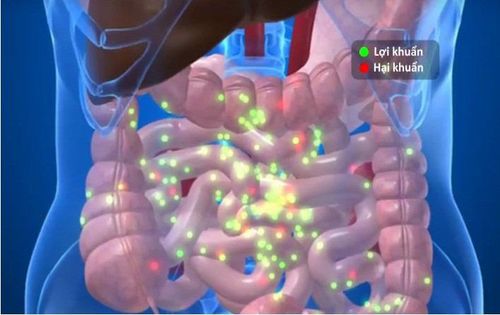
Quá nhiều vi khuẩn đường ruột sẽ dẫn tới đau bụng và đầy hơi
1.2 Extraintestinal Complications Arthritis: Arthritis is a very common complication of Crohn's disease, resulting in pain, swelling, and lack of flexibility. There are three types of arthritis that sometimes accompany Crohn's disease:
Peripheral: This condition affects the large joints in the arms and legs such as the elbows, knees, wrists, and ankles. Axial: This condition affects the spine or lower back Ankylosing spondylitis: A more serious type of arthritis of the spine, very rare in people with Crohn's disease, but it can happen. Ankylosing spondylitis can lead to inflammation of the eyes, lungs, and heart valves. Skin disease: This is the second most common extraintestinal complication in Crohn's disease.
Osteoporosis : Medications such as steroids can lead to osteoporosis . Osteoporosis prevents the body from absorbing calcium, increases the production of cells that break down bone, reduces the number of cells that help form bone, lowers the body's production of estrogen and inflammatory proteins that alter bone speed Old is eliminated and new is formed.
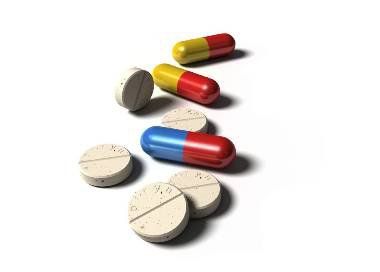
Việc sử dụng các thuốc điều trị sẽ dẫn đến các vấn đề về xương
2. The Link Between Psoriasis and Crohn's Disease
Psoriasis is a type of dermatological disease, this is also an autoimmune disease. Psoriasis is closely related to Crohn's disease. After studying the genotypes of tens of thousands of people with serious autoimmune diseases, researchers have discovered that genes with the same problem may be responsible for psoriasis and Crohn's disease. These conditions trigger inflammation in similar ways.
Dermatology and intestines are organs made up of tissue that make it easier to absorb substances. So it's not surprising that both of these organs are sensitive and responsive to inflammatory signals that travel throughout the body.
People with psoriasis are 2.5 times more likely to develop Crohn's disease and 1.6 times more likely to develop ulcerative colitis. Some people experience digestive upset before and after psoriasis.
Crohn's disease and psoriasis also share the same association with obesity. Fat tissue produces chemicals that change the way the body works, including the immune system. Obesity increases the incidence of psoriasis and Crohn's disease and makes treatment less effective.
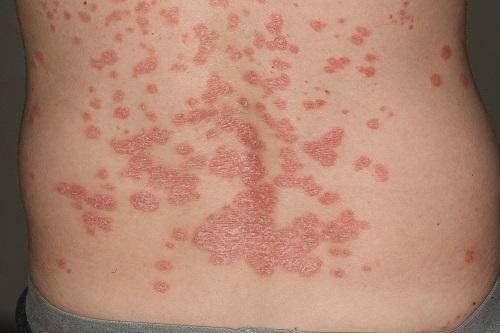
Mắc bệnh vảy nến làm tăng nguy cơ mắc bệnh Crohn cao gấp nhiều lần thông thường
>> See more: Treatment of high-risk Crohn's patients - Article by Doctor Mai Vien Phuong - Department of Examination & Internal Medicine - Vinmec Central Park International General Hospital.
3. Treatment of Psoriasis and Crohn's Disease
The treatment of psoriasis and Crohn's disease will be more effective if the patient receives the same care and treatment from a gastroenterologist and a dermatologist. Doctors decide which treatment is right for you based on your symptoms, severity, and medication side effects. Because there are certain medications that can work for both psoriasis and Crohn's disease. However, there are also some medications that treat psoriasis that worsen symptoms of Crohn's disease.
Patients need to maintain a scientific diet. Maintaining a gluten-free diet has helped some people treat psoriasis lesions as well as manage celiac disease.
Quitting smoking and alcohol will be beneficial in the treatment of psoriasis and Crohn's disease at the same time.
Follow a scientific diet combined with regular exercise to help prevent obesity and reduce stress.
Vinmec International General Hospital with a system of modern facilities, medical equipment and a team of experts and doctors with many years of experience in medical examination and treatment, patients can rest assured to visit. examination and treatment at the Hospital.
To register for examination and treatment at Vinmec International General Hospital, please book an appointment on the website for the best service.
Please dial HOTLINE for more information or register for an appointment HERE. Download MyVinmec app to make appointments faster and to manage your bookings easily.
References: webmd.com, sciencedirect.com, psoriasis.org



